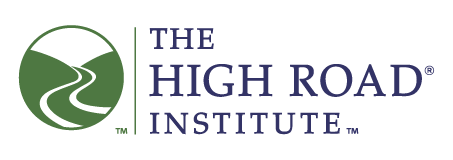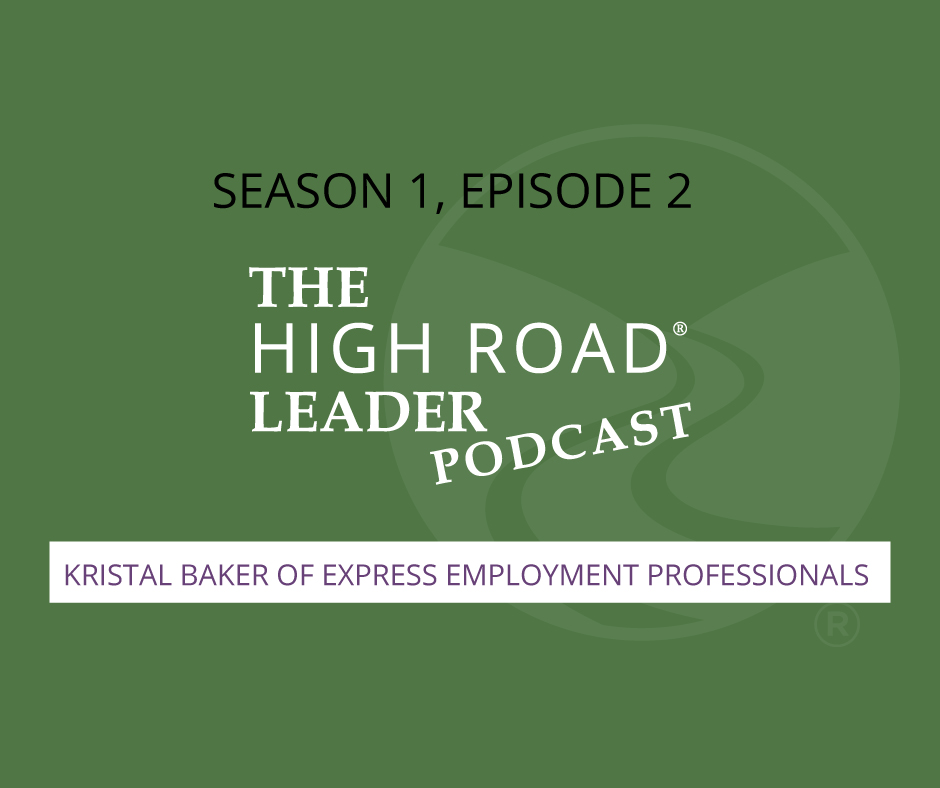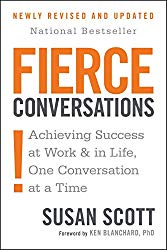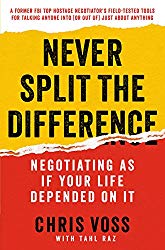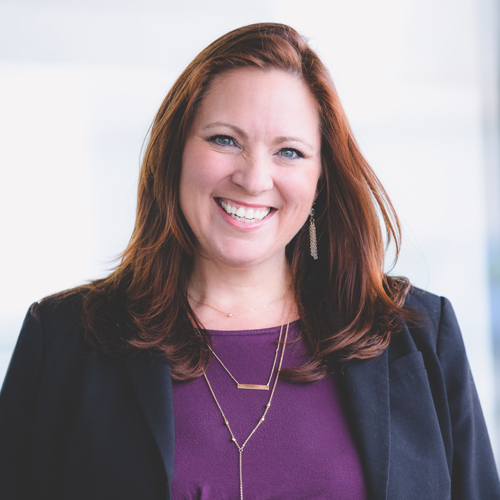
Kristal Baker of Express Employment Professionals
Kristal Baker, owner and CEO of the Bremerton Express office, has been a part of this community for 13 years. She moved here after a brief weekend visit in which she fell in love with the area and wanted to put down her roots in Kitsap County. In addition to being a local small business owner, Kristal is also very active in the community. She is the Chairman of the Board of Directors for the Silverdale Chamber of Commerce. A 5-year member of the Poulsbo & Bremerton Chamber of Commerce, West Sound Human Resource Association, Kitsap Home Builders Association, American Staffing Association and is the Treasurer for the Alliance of Women Owned Business.
Kristal came from a background in Sales and Leadership and is uniquely suited to thrive in the HR & staffing industry. Supporting businesses across North America to thrive and grow in the areas of sales, communication, inventory control, hiring, training, systems, processes and leadership. She very much looks forward to putting these skills to work in your business. Kristal is an accomplished facilitator and is available to work with you and your team to increase communication, effectiveness and accountability.
The Bremerton Express Employment Professionals office began operation in 1987 with original owners Wayne & Phyllis Sargent and passed ownership to Kristal Baker in 2014. We serve Kitsap County and surrounding areas, including Puget Sound Naval Base Kitsap and placed 4,095 workers at 1,500 companies in 2018!
Our staff has worked closely with local businesses to understand their workforce needs and to provide the most qualified candidates in commercial, administrative and professional positions for short and long-term assignments. As a full-service staffing provider, our solutions include, evaluation hire, direct hire, temporary and contract staffing, professional search and HR services. Plus, we’re an ISO 9001:2008 registered business so our customers know that we are committed to quality service. We help job seekers find work and we help businesses find great and productive employees.
Because we are members of this community, working always to be a trusted HR resource for small and medium sized businesses we have a vested interest in our city and want to help the people and businesses of Kitsap County thrive and grow together.
Key Lessons from my conversation with Kristal Baker, CEO of Express Employment Professionals.
Let’s Learn Something!
The owner of a small business, as Kristal said, wears numerous hats. In my opinion, some are more vital to your success, than others. For example –
Hiring and retaining good employees requires a high level of interpersonal skills.
Prospecting and acquiring clients or customers require sound strategic thinking.
Banks and other lenders will loan you money AFTER you prove that you can manage the business well.
To run operations – the nuts and bolts of any business – you must take safe risks, be organized, and think in terms of efficient systems and processes.
Do you hear the common thread among all those hats?
I do. That thread is good leadership. (though I could have a bias that is showing – I’ll admit that)
Becoming a high-quality leader of a small business, team, or project means that you must have the versatility of a Swiss Army knife. You often find yourself outside of your comfort zone. But did you know that most good leaders, in all sectors, have a coach? Yes, yes they do! This multi-talented guide partners with you to enhance your vital skills. A coach helps you expand your comfort zone.
The leader who takes the high road is introspective and commits to always improving. Therefore, seeking out a coach and then asking for help shows me that you are a high-quality leader.
Are you currently comfortable wearing many different hats?
Do you now have someone helping you wear those numerous hats with confidence?
One of my superpowers is my ability to see a connection between the job you wanted as a child and the job you have now. Let’s see if I can do this with Kristal.
Key Points
I sincerely hope that you gained at least three fresh ideas that you can implement immediately. I did. This is what I gleaned from my conversation with Kristal Baker, CEO.
- You could start your week by touching base with every employee as Kristal does. This investment of time provides her with information she might miss. This act helps her identify problems sooner, and it demonstrates to her employees that she cares about them.
- Like most CEOs, arriving to that leader role is often a disconnected journey, where the dots don’t seem to connect with each other. I believe you will connect them when you take some time to pause and reflect on your history. Your conclusion will be likely the one Kristal has, “this was meant to be.”
- Kristal created a powerful leadership intention: Passionately Facilitating Evolution. This statement creates a tremendously inspirational defining role for her.
- Kristal highlighted a valuable best practice that every leader must enhance: delegating. Let’s hear why this skill is vital to your success, in her words: “The number one tool that all of us have, and it’s so simple, but it’s not easy… and that is delegation. In order to develop people, we have to delegate things to them. And if we slow down and find the time to train people and give them things to do – that builds their skills, builds their confidence, it shows them that you trust them and believe in them, and that is the biggest tool I’ve ever seen for creating good leaders. People that can think for themselves. People that can problem solve on their own because you’ve taught them how to do it. You don’t just give them the answers.”
Ron: … guest, Kristal. It is a pleasure to have you here and so we can learn about your journey to become a leader and how you ended up becoming an entrepreneur.
Kristal: Thanks. I’m really excited to be here. Thanks for inviting me.
Ron: You are welcome.
Question 1
Ron: What is it that you’re doing now as an entrepreneur, as an owner of a personnel agency? What is your primary role in that organization?
Kristal: My primary role is obviously as the CEO, so all the things that that entails from payroll to one-on-ones with my associates, but I wear every single hat. This week I was the industrial staffing consultant because I am in search of a new staffing consultant, who doesn’t start till Monday. I also wear the outside sales hat. As a small business owner, I don’t even know if you can say you wear a hat so much as every hat.
Ron: That is an analogy that I use often, wearing the many hats, and usually because we’re wearing so many hats, making sales, taking care of personnel, that the leadership is something that often gets last on the agenda.
Kristal: It’s so true, which is why I schedule weekly one-on-ones with every single one of my employees first thing on Monday morning, so it happens before the week gets away with me, before the day gets away with me, that I take the time out, half hour per person, to connect and find out what they need to support them.
Ron: That’s an excellent tool for developing employees as well as being a coach too.
Kristal: Yeah, and so simple.
Question 2 Dream job
Ron: Now this question may be provocative, and there’s a reason I ask. I’ll get back to it toward the end. When you were a child, what did you want to be? What was your dream job?
Kristal: I actually wanted to be a graphic designer, and not because I knew anything about graphic design, but I’d read a book at some point in my younger years, probably middle school or high school, and the female lead in the book was a graphic designer. I actually went to school, took two quarters of graphic design and hated every minute of it. In hindsight, really what I liked about being a graphic designer was that she traveled all over the world and met all these different people and she wore really cool suits, so …
Ron: Maybe that’s where you got your sense of style.
Kristal: Right. Exactly.
Question 3
Ron: Now, of course, you went from, you said a graphic designer and you dropped that. Then you became a stylist. You’ve been a facilitator. What overall was your path to leadership? Why did you and how did you become that leader?
Kristal: I actually started as a horse trainer, so I went from going to school to want to be a graphic designer to being a horse trainer. I’m like, “No, I don’t want to be behind a desk.” I went and worked with animals, which I loved, for many years and decided I wanted to do that traveling that I talked about as the graphic designer. You couldn’t really travel as a horse trainer, so I went to school to be a hairdresser because I knew I could travel as a hairdresser and get a job anywhere. Ironically, it was hairdressing that led me to leadership because I tore my rotator cuff. I was a highly successful hairdresser, but that meant I worked a little too much and tore my rotator cuff. I was lucky enough to work with Lorinda Warner at Lorinda’s Salon in Mill Creek.
She took the time. She promoted me into management, brought me in, and unlike what I see in a lot of companies, you take a top performer and just throw them into a leadership or management role and they flounder because they don’t have the skills. Lorie took the time to teach me how to read a profit-and-loss, so I understood how the business worked and I just got a passion for it. She taught me balance sheets. She taught me how to use Word and Excel. I didn’t even know how to use those things at that time. Really, she set me on the path to leadership and set me up with the skills I needed to be able to do it effectively.
Ron: Sometimes that’s what it takes is just that right person to find the leader within you that was already there.
Kristal: Absolutely.
Ron: Do you regret any of the choices you made as you moved towards your eventual role as being an influencer?
Kristal: No, not at all. When I left Lorinda’s, it was I was bored. I grew my skills and I just wanted to learn more and be more. That’s when I went to work at Salon Services. I was the Davines brand manager for the … It’s a high-end Italian hair care line, and that’s where I got my travel. I took that job because I got world travel, and that’s probably where I rounded out my leadership abilities, because when you travel to different cultures and learn how to teach hairdressers of a different language and a different culture, a different style, it really helps you understand how small the world really is.
Then when you’re just looking at a small office and running that, we’re all different people from different belief systems and different ideas, and how to communicate through that and build each other up through that is … Yeah. I don’t regret any choices all the way through. They all taught me all the things I needed to know to be here.
Ron: Very intriguing. Is that also where you learned your sales skills that you use in your current job?
Kristal: Yes, absolutely. George Learned at Salon Services is probably one of the best salesmen I’ve ever met in my life, and he’s definitely responsible for my sales skills, so if anyone wants to complain, give him a call.
Question 4
Ron: Now being the CEO of the Bremerton Express office, what does your organization do best?
Kristal: We match good people with great companies. The whole idea of what we do is we go out and search out your next best employee. If that employee is a bookkeeper and you needed to have all these certain skills, we go find someone. We check all of their references and we test them on those skills before we ever present them to you so that you know you’re getting someone who matches what you’re looking for. We bring some great industry experience, so we know what you’re going to need to pay to keep them or get them or what kind of benefits you need to have, that sort of thing. And so we really just partner with companies to help them find their next great employee, and we partner with employees to help them get the right skills and the right marketing and the right resume to help them get the job that they’re dreaming of.
Ron: Excellent.
Question 5
Ron: Now let’s change gears just a little bit. How do you define good leadership based on your experiences?
Kristal: That’s a tough one. And when I was thinking about that, I kept going back to … I guess because I think leadership is so personal and it’s such a different thing for each leader, but for me, it fits in with my purpose statement, which is passionately facilitating evolution. I think that under underneath that means that with everything that I have, I am going to facilitate change and growth and moving people forward. I think that’s my job as a leader is to develop my people, to help them move forward, to help them grow, to give them the skills that they need to be everything they want to be. Sometimes that means not with me, but that’s the risk that we take as a leader. That shouldn’t stop us from developing people and helping them be the best they can be.
Ron: I love that personal mission statement. Would you say it again? Because I’d like really my audience to hear that. That’s an amazing one.
Kristal: Yeah, absolutely. Passionately facilitating evolution.
Ron: I love that.
Kristal: The name of my LLC that I bought my company, Express Employment, with is Intoxicating Intellect. When I was doing coaching and facilitating, that was the name of my company. And that was our purpose statement, was really just to help passionately with everything that we were to help people grow and be what they wanted to be.
Ron: Wonderful.
Question 6
Ron: And you mentioned earlier that you do need to develop your own people and I would suspect in the personnel business you also are asked for employees who can act like leaders. What’s working for you in developing more capable leaders, both for yourself and for your clients?
Kristal: I think the number one tool that all of us have, and it’s so simple, but it’s not easy, and that is delegation. In order to develop people, we have to delegate things to them. The problem is as leaders, managers, we have this belief that if it’s going to be done right, I have to do it myself, or I’m the only person that knows how to do it right. But the truth is, is we’re the only person that knows how to do it right now. If we slow down and take the time to train people and give them things to do, that builds their skills, it builds their confidence. It shows them that you trust them and believe in them, and that is the biggest tool I’ve ever seen for creating good leaders, people that can think for themselves, people that can problem-solve on their own because you’ve taught them how to do it. You don’t just give them the answers, and it’s not easy to do.
I fail at it probably on a daily basis, but it doesn’t stop me from trying. For me, it’s because I just need to slow down, and I also like to be the hero. I want to be the person that knows the things and can help my people, and so when they come to me with a problem, I just want to go, “Oh, go do this,” instead of slowing down and saying, “What do you think you should do?” Because they know. We hire really intelligent, capable people, and we don’t tend to trust them to be that.
Ron: I agree. Yeah. One of the terms I use is instead of delegating, it’s creating opportunities for people. By putting it that way, you’re saying, “I’m opening up a door. Here’s your opportunity to walk through that door and show me what you are capable of.”
Kristal: I like it.
Ron: Thank you.
Question 7
Ron: What is a leadership book that you would recommend to the listeners?
Kristal: Oh, Fierce Conversations with Susan Scott. It’s a book that’s so dog-eared on my shelf because I reference it all the time. It’s about how to have really real conversations with people, especially when it’s uncomfortable or might be in conflict, but just to be able to have that conversation. Yeah, I use that tool. She has a tool in there. I think it’s called the 60-second Opener where you just write down what it is you want to have the conversation about and then you have to go through all of that in 60 seconds with someone and then invite them to respond and listen to what they have to say. Yeah, that’s probably a never-ending learning curve for me personally, is the fierce conversations and, yeah, it’s made a huge difference.
Another one would be Split the Difference, or Never Split the Difference, sorry, by Chris Voss, which is Negotiating As If Your Life Depends On It. He was a hostage negotiator for the FBI, but he talks about it in a sales perspective of how to negotiate. But as a leader, it’s not just a sales conversation, but how do you negotiate compensation packages with your employees, negotiate schedules, negotiate workloads? His techniques in there are very, very helpful.
Ron: I would think that, especially the first book that you mentioned, Fierce Conversations, that’s important in three different arenas. First of all with your employees, with your customers, and then of course the people that you are looking to get into your clients companies to be hired.
Kristal: Absolutely. Absolutely. And I teach stuff from that book to my team all the time.
Question 8
Ron: And you did mention to me when we talked last time that you get a lot of leadership training. Does that come through the company you work for or do you go out and seek your own learning opportunities?
Kristal: Both. Both. Express Corporate does a great job. We have an international leadership conference every year in February, so it’s a really great way to kick the year off. And they usually have three or four great keynote speakers and then a bunch of breakout sessions, so I get a lot there. I also get a ton through working with the Silverdale Chamber of Commerce and also through my women’s group Alliance of Women-owned Business. Both of those companies bring in speakers all the time. I just get to suck up that information. And then I also work with a business coach because I can’t always see everything myself.
Ron: Leadership is a journey.
Kristal: Yes, it is.
Question 9
Ron: Now what does the term high road mean to you when you hear that phrase?
Kristal: Well, the first thing I think of is integrity, but it also says humbleness or humility to me. To take the high road means not to get mired down in my ego, I suppose, and rise above it.
Ron: I like that.
Question 10
Ron: You told us a little bit about your firm. If someone was looking to either engage you to find a great employee or maybe work for you, how would they get hold of you? Where can they learn more about, especially the Bremerton office?
Kristal: They can definitely go to our website, which is expresspros.com/Bremerton, or they can go to our Facebook page, which is Kitsap Jobs. We post all of our stuff on there as well, but on our website there’s inquiry form that they can go in if they’re a company and send that in to say, “Hey, how does this work?” And we also have online application that people who are looking for work can just supply right there online while they’re having their morning coffee.
Ron: Are there links to some of the organizations that you belong to? You mentioned two.
Kristal: Yeah. Those are all inside of my bio on our website.
Ron: All right, that’s great.
Kristal: Yeah.
The Ask
Ron: Let me return the favor and see how I might be able to help you. What would be an ask of my audience? Maybe you’re looking for a particular position or opportunity or whatever else. I’ll let you do just a little ask.
Kristal: Hmm. I think if I had an ask right now, I have a manufacturing and production company that is busy beyond belief, and I need entry level manufacturing, either wood shop, steel shop, fabric shop. They build high-end desks for Nike and Boeing. It’s a great company. They have benefits. I probably have 20 open positions right there today, day shift and swing shift, and so if you know anyone that’s looking for a job, having a hard time and they’re in Kitsap, by all means send them to our website and have them apply because I could put them to work tomorrow.
Ron: That is a lot of openings.
Kristal: I know. They’re busy.
Ron: It seems like, to me, as we’re moving towards the information age and we’re already there, those jobs, those skilled jobs where people work with their hands just seem to be not as important or people are not being trained in those. I’ve talked to some owners of businesses where they’ve actually had to hire people from other countries who developed a skill and bring them over here in order to have those type of skills in their organizations.
Kristal: It’s so true. We kind of did a disservice there at one point because we put such a high value on getting a college degree, and all of our young adults that maybe love working with their hands thought they still had to get a college degree. I have tons of people come in to me every day who can’t get a job with a college degree, but if a carpenter, a mechanic, an HVAC technician walks into my office, a welder, I can put them to work tomorrow, top pay, because I can’t find them.
The baby boomers are aging out of all of those arenas and we don’t have the young group coming up behind them to learn how to do it. That’s where this company, and why that was probably my ask, can be a great place for those people to start that don’t have those skills because they will teach them there. And you just start by pushing wood into the edge bander and you can move up to becoming a CNC machinist, a welder, a project manager, plant manager. There’s a lot of opportunities there.
Ron: Thank you. And I will, again, pass it on to my audience.
Dream Job, part 2
Ron: Do you recall the question that I asked you about what you wanted to be when you grew up? You mentioned a designer. I ask it because of two reasons. First of all, in our child’s mind, there was something that we wanted to become, but we didn’t have the words for it, so we gravitated toward a role or a job. In your case, it was the designer. That’s one of the reasons that I asked it, because I believe that we eventually achieve it.
The second one, of course, helps us to understand something about where you came from, but let me go back to the designer. If you think about designer, there’s an awful lot of creativity in that. You’re taking concepts and trying to put them into a form that is meaningful to the person you’re designing something for. Well, in a personnel agency, you’re doing the same thing. You’re taking talent and trying to fit the talent in the right slot. You’re trying to find the right people who then can help you to select that talent.
You’re also hiring salespeople to select the clients that you know that will have a great relationship and a lasting relationship. There’s an awful lot of art in exactly what you’re doing, so I believe that you have achieved that. You mentioned earlier that you eventually ended up in terms of the travel. Well, when you go from client to client, you’re actually traveling, though not first class, maybe what you were thinking of.
Kristal: Right.
Ron: Does that make sense?
Kristal: I feel like, I think you absolutely have a great point there in that what I was really attracted to in that character of that book, in that graphic designer position, was that she was powerful and she was professional and she wore great clothes and she traveled and she was respected., and absolutely I’ve achieved that. Absolutely.
Ron: And I see that in getting to know you.
Kristal: Yeah. That’s fun. I like that.
Ron: You’re welcome.
Interview Close
Ron: Thank you for making a difference, Kristal. I see you as a person of influence, and the audience now can now see and understand that you are helping to increase the number of great leaders that we so desperately need. I appreciate the time that you have spent with me and the insights into who you are and why you are, so thank you.
Kristal: Thank you, Ron. I really had a great time and, as always, enjoy having a conversation with you.
Ron: You’re welcome.
